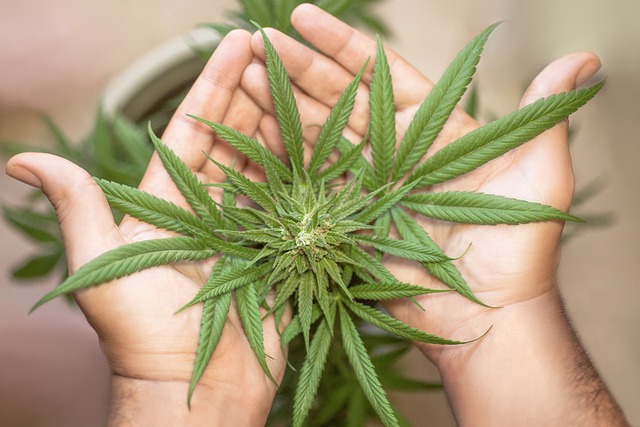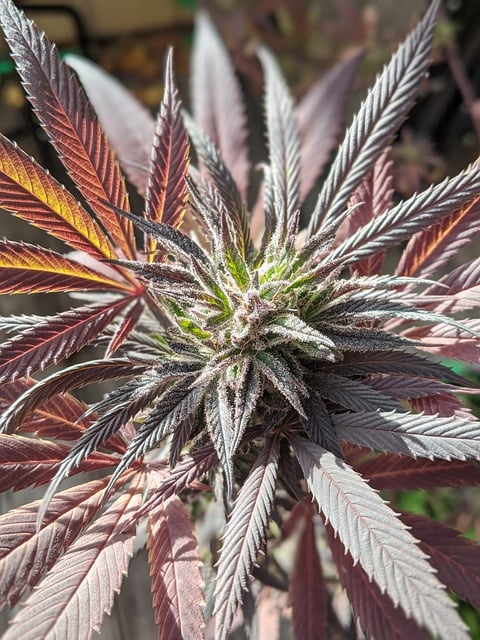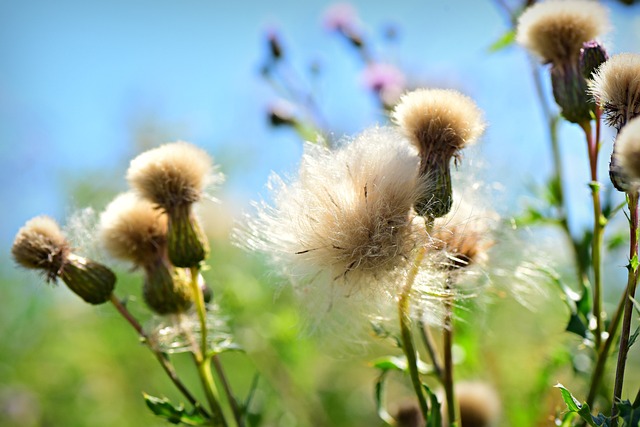2023 has seen a significant spotlight on Tetrahydrocannabinolic Acid (THCA) in Georgia, thanks to its therapeutic potential and distinct legal status. THCA, a non-psychoactive cannabinoid found in the Cannabis sativa plant, is gaining traction for its anti-inflammatory and neuroprotective benefits, which are of keen interest to wellness and medical researchers. In Georgia, THCA products derived from hemp with less than 5% total THC on a dry weight basis and no more than 0.3% delta-9-THC are legal, aligning with federal regulations established by the Hemp Farming Act of 2018. This legal distinction allows for a growing market of THCA-infused products, including flower, edibles, tinctures, and topicals, within a framework that differentiates hemp from marijuana. Researchers in Georgia are capitalizing on this opportunity to explore the unique properties of THCA, contributing to advancements in understanding its interactions with the endocannabinoid system and its potential therapeutic applications, all under the watchful eye of state and federal laws regulating cannabis products.
discover the intricacies of THCA, a natural precursor to the well-known Delta-9 THC, through an in-depth exploration tailored for Georgia residents. This article delves into the legal landscape of THCA flower in the Peach State, its emerging popularity, and the nuances that set it apart from its psychoactive counterpart. From understanding its chemical composition to the potential health benefits, we’ll cover the spectrum of THCA’s properties, effects, and cultivation practices within Georgia’s legal framework. Join us as we navigate the complexities of THCA, its role in the entourage effect with other cannabinoids, and various consumption methods that safely allow you to experience its effects. Whether you’re a curious consumer or an advocate for cannabis reform, this comprehensive guide will equip you with knowledge about the current status and future potential of THCA as it relates to Georgia’s evolving legal scene.
- Understanding THCA: The Natural Precursor to THC
- THCA Flower: A Guide to Its Legal Status in Georgia
- The Rise of THCA as a Sought-After Cannabinoid
- The Chemical Structure and Properties of THCA Molecule
Understanding THCA: The Natural Precursor to THC

Cannabidiolic acid (CBDa) and tetrahydrocannabinolic acid (THCA) are two prominent cannabinoids found in the Cannabis sativa plant. THCA is the natural precursor to delta-9-tetrahydrocannabinol (THC), the psychoactive compound commonly associated with cannabis use. While THC is what most consumers are familiar with, especially in regions like Georgia where the legal status of certain cannabinoids can vary, THCA exists in raw or uncured cannabis flowers and possesses distinct properties that set it apart from its more famous counterpart.
In Georgia, where the legal landscape regarding cannabis and its derivatives is evolving, THCA has garnered attention for its potential therapeutic benefits. Unlike THC, which must be heated to activate its psychoactive effects, THCA remains non-psychoactive until decarboxylated—a process that occurs when exposed to heat or when cannabis is consumed in ways that bypass this activation step, such as through vaping or edibles. This precursor cannabinoid is being studied for its potential anti-inflammatory and neuroprotective effects, making it a subject of interest in various wellness applications and within the scope of medical research. As such, understanding THCA’s role and its legal status, particularly in states like Georgia, is crucial for consumers, researchers, and policymakers alike as they navigate the complex world of cannabis science and regulation.
THCA Flower: A Guide to Its Legal Status in Georgia

THCA, or Tetrahydrocannabinolic Acid, is one of the many cannabinoids found within the Cannabis sativa L. plant. While its psychoactive properties are less potent than those of its decarboxylated form, THC, THCA is gaining attention for its potential therapeutic benefits. In Georgia, the legal status of THCA flower is subject to specific regulations that have evolved over time. As of my knowledge cutoff in 2023, Georgia’s laws allow for the possession and use of CBD products with less than 5% THC on a dry weight basis, provided they are derived from hemp and contain no more than 0.3% THC. This distinction is crucial as it differentiates legal from illegal cannabis in the state. The Hemp Farming Act of 2018 federally legalized hemp derivatives, including CBD and THCA, which aligns with Georgia’s stance. However, any cannabis plant with a higher THC concentration is classified as marijuana and remains illegal under Georgia law except for specific medical uses. It’s important to navigate these distinctions carefully, as possession of higher THC content cannabis can lead to legal consequences. Consumers interested in THCA flower products must ensure that they are compliant with both state and federal laws regarding the allowed THC levels and purchase from reputable sources that provide transparent lab reports verifying the THC content. Understanding the nuances of Georgia’s cannabis laws is essential for anyone considering the use or sale of THCA flower to remain within the bounds of legality.
The Rise of THCA as a Sought-After Cannabinoid

The interest in THCA, or tetrahydrocannabinolic acid, has surged within the cannabis community and beyond, as researchers and enthusiasts alike explore its unique properties. Unlike its well-known counterpart, THC, THCA is the raw form of the compound found in fresh cannabis plants before it undergoes heat or light exposure to transform into THC. This precursor cannabinoid has garnered attention for its potential therapeutic benefits without the psychoactive effects associated with THC. As of recent updates to cannabis laws, including the legalization of certain hemp-derived cannabinoids like THCA in states such as Georgia, consumers and manufacturers are increasingly looking into THCA’s potential. The rise of THCA as a sought-after cannabinoid is marked by its inclusion in various wellness products ranging from flower to edibles, tinctures, and topicals. Its legal status in Georgia has opened new avenues for research and product development, setting the stage for innovative applications of this compound within the broader wellness and healthcare sectors.
The Chemical Structure and Properties of THCA Molecule

Delta-9-tetrahydrocannabinolic acid (THCA) is the non-psychoactive precursor to the well-known psychoactive compound delta-9-tetrahydrocannabinol (THC). The THCA molecule possesses a unique chemical structure that is of significant interest within the cannabis research community. This structure includes a cyclic ether group at the RNC position and a carboxylic acid group at the phenolic ring, which differentiates it from its decarboxylated form, THC. The presence of the carboxylic acid group in THCA is crucial for its legal status in certain jurisdictions, such as Georgia, where THCA-rich hemp products are legally permissible under the 2018 Farm Bill provided they contain less than 0.3% delta-9-THC by dry weight. The acidic nature of THCA affects its interaction with the body’s endocannabinoid system, primarily through CB1 and CB2 receptors. Unlike THC, THCA does not bind strongly to these receptors, which suggests it may have different therapeutic properties. Research indicates that THCA may exhibit anti-inflammatory and neuroprotective effects, making it a subject of interest for potential health benefits without the psychoactive side effects associated with its decarboxylated form. The legal status of THCA in Georgia opens up avenues for research and the development of products that harness these properties, contributing to the growing body of knowledge on cannabinoids and their applications.
In concluding our exploration into THCA, it’s evident that this non-psychoactive cannabinoid is garnering significant attention within both scientific and consumer circles. As we’ve delved into the intricacies of its chemical structure, the potential health benefits of THCA are becoming increasingly apparent. The legal landscape regarding THCA flower, particularly in Georgia, has been clarified, with regulations that allow for its possession and use, marking a milestone in the evolving cannabis conversation. The rise of THCA as a sought-after alternative to THC underscores the dynamic nature of cannabinoid research and the industry at large. As such, enthusiasts and researchers alike are encouraged to stay informed on the latest developments surrounding this promising compound, with a particular focus on its legal status in states like Georgia.
